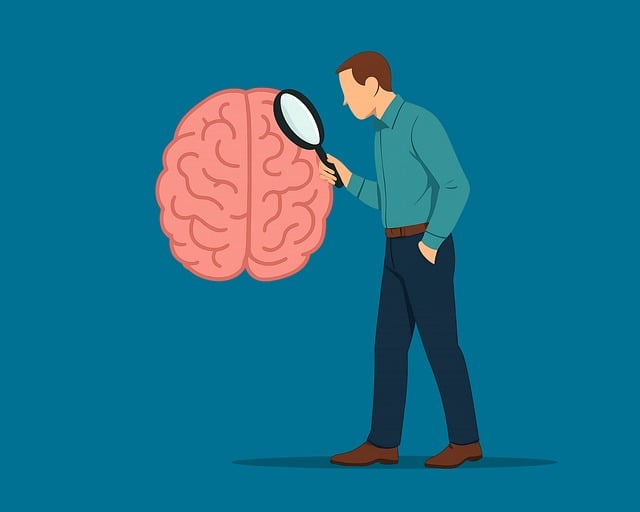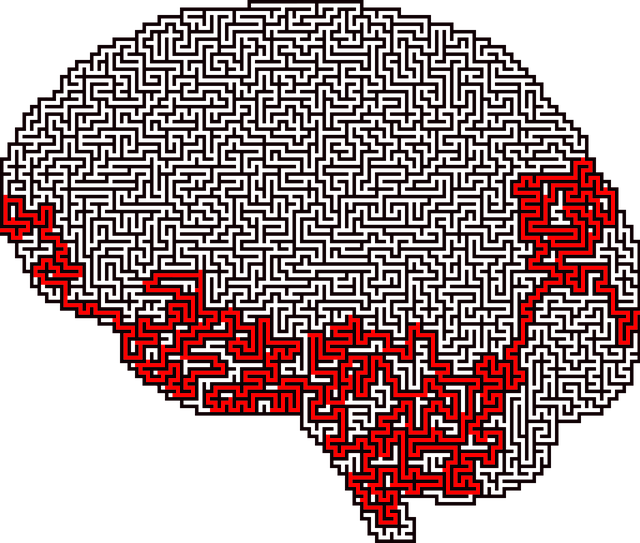Greenwood Village American Sign Language Therapy (GVASL) is a pioneer in understanding mental health data through diverse methods, including clinical notes, patient surveys, and community feedback. By breaking down barriers to care, GVASL offers tailored interventions like stigma reduction and crisis guidance, particularly for deaf and hard-of-hearing individuals. Utilizing advanced statistics and self-awareness exercises, they personalize therapy plans based on cultural backgrounds, enhancing the effectiveness of mental health initiatives. Their data-driven approach centers on ethical challenges like confidentiality and cultural competency training, ensuring equitable care through emotional healing processes, thus strengthening community bonds.
Mental health data analysis is a powerful tool for understanding and improving patient outcomes. In this comprehensive guide, we explore essential aspects of mental health data interpretation, highlighting the unique role of Greenwood Village American Sign Language Therapy in data collection. From understanding foundational concepts to employing advanced statistical techniques and considering ethical implications, we delve into strategies that can revolutionize therapy practices. Discover how data-driven insights can enhance treatment effectiveness and improve patient lives.
- Understanding Mental Health Data: A Foundation for Effective Analysis
- The Role of Greenwood Village American Sign Language Therapy in Data Collection
- Techniques for Interpreting and Making Sense of Mental Health Statistics
- Applying Insights: Using Data to Improve Therapy Outcomes
- Ethical Considerations in Mental Health Data Analysis
Understanding Mental Health Data: A Foundation for Effective Analysis

Understanding mental health data is a cornerstone for effective analysis and interpretation. This involves recognizing that mental illness manifests differently across various demographics, with unique challenges and cultural contexts. At Greenwood Village American Sign Language Therapy, we’ve seen firsthand how comprehensive data collection methods can break down barriers and improve access to care. By integrating diverse data sources, such as clinical notes, patient surveys, and community feedback, professionals can gain a nuanced understanding of the mental health landscape.
This foundational step is crucial for developing tailored interventions like Mental Illness Stigma Reduction Efforts, Crisis Intervention Guidance, and Mental Health Education Programs Design. Armed with this knowledge, healthcare providers can create more inclusive and effective support systems, ensuring that everyone receives the care they need without facing the hurdles associated with stigma or lack of understanding.
The Role of Greenwood Village American Sign Language Therapy in Data Collection

Greenwood Village American Sign Language Therapy (GVASL) plays a pivotal role in the data collection process for mental health research, offering unique insights into communication and well-being. By utilizing American Sign Language (ASL), GVASL facilitates comprehensive assessments, capturing nuances often missed in traditional verbal or written methods. This approach is particularly valuable when studying diverse populations, including deaf and hard-of-hearing individuals, ensuring their voices and experiences are accurately represented in mental health data.
Beyond data collection, GVASL professionals provide Crisis Intervention Guidance tailored to the needs of sign language users, addressing emotional regulation challenges. They also offer Burnout Prevention Strategies for Healthcare Providers, which are essential for maintaining a healthy work-life balance, especially in high-stress healthcare settings. These services contribute to a holistic understanding of mental health, promoting better support and care for individuals across various communities.
Techniques for Interpreting and Making Sense of Mental Health Statistics

Interpreting mental health statistics requires a nuanced approach to ensure accuracy and meaningful insights. One effective technique involves normalizing raw data by comparing it against established norms and benchmarks. This process helps contextualize individual or group experiences, allowing for a more precise understanding of the prevalence and intensity of specific mental health conditions within a given population. For instance, using Greenwood Village American Sign Language Therapy as a case study, comparing local survey results on stress levels with national averages can reveal unique challenges faced by the deaf community.
Additionally, advanced statistical methods like regression analysis enable researchers to identify relationships between various factors and mental well-being. By examining correlations between socioeconomic status, access to resources (such as Stress Management Workshops Organization programs), and emotional healing processes, these analyses can guide targeted interventions. Self-Awareness Exercises play a crucial role in this process by empowering individuals to track their progress and adjust coping strategies accordingly, thereby enhancing the effectiveness of overall mental health initiatives.
Applying Insights: Using Data to Improve Therapy Outcomes

At Greenwood Village American Sign Language Therapy, we understand that data is a powerful tool in transforming mental health care. By analyzing and interpreting patient information, therapists can gain valuable insights into treatment effectiveness and personalize therapy plans accordingly. This approach allows for more tailored interventions, considering each individual’s unique needs and cultural backgrounds.
For instance, data analysis can highlight specific challenges faced by diverse communities, enabling healthcare providers to deliver culturally competent care. This is especially relevant in addressing the emotional healing processes of individuals with mental illness, as it helps reduce the stigma often associated with seeking therapy. Through continuous evaluation and adaptation, therapists can enhance their practices, ensuring better outcomes for every patient.
Ethical Considerations in Mental Health Data Analysis

In the realm of mental health data analysis and interpretation, ethical considerations are paramount. As Greenwood Village American Sign Language Therapy centers navigate complex datasets, they must uphold the highest standards of confidentiality and privacy, ensuring client information remains secure and is used only for intended purposes. This includes adhering to strict regulations such as HIPAA (Health Insurance Portability and Accountability Act) in the United States, which sets guidelines for protecting sensitive health data. Moreover, cultural competency training for healthcare providers plays a crucial role in interpreting mental health data accurately, especially when serving diverse communities. Understanding cultural nuances influences how individuals express and experience emotions, potentially shaping their healing processes.
In addition to these aspects, emotional healing processes and social skills training are integral to the overall ethical framework. Therapists must be mindful of potential biases or stereotypes that could impact treatment plans, ensuring equitable care for all clients. By integrating these considerations into data analysis, Greenwood Village American Sign Language Therapy centers can foster a more inclusive and effective support system, promoting better outcomes for individuals seeking mental health services. This approach not only enhances patient satisfaction but also strengthens the bond between healthcare providers and their communities.
Mental health data analysis is a multifaceted process that requires a deep understanding of statistics and ethical considerations. As highlighted, Greenwood Village American Sign Language Therapy offers valuable insights into effective data collection methods, showcasing the importance of diverse approaches in understanding mental health trends. By employing advanced techniques to interpret statistics, professionals can make informed decisions, ultimately enhancing therapy outcomes for a wide range of individuals. This holistic approach, combined with ethical guidelines, ensures that data analysis contributes positively to the field while respecting individual privacy and autonomy.














